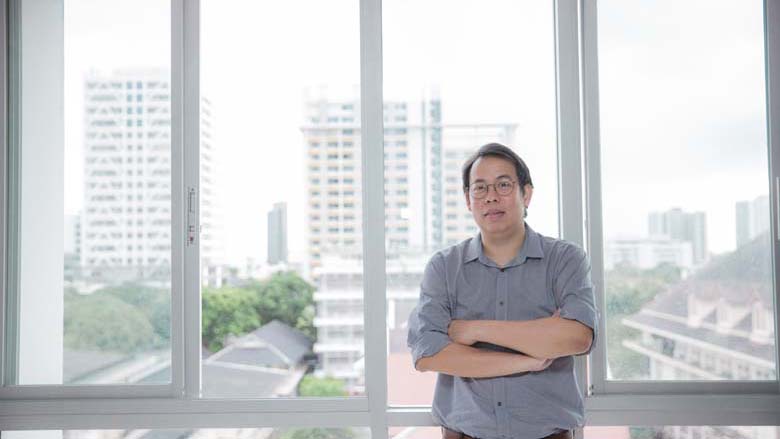
Meticuly เมื่อหมอกับวิศวะร่วมพลิกโฉมหน้าวงการศัลยแพทย์แบบไม่พึ่งของนอก (TH/EN)
[For English, please scroll down.]
“คนทำงานวิศวกรรมคือ ‘ผู้สร้าง’ คำถามคือเราจะสร้างอะไรให้มีประโยชน์”
คือทัศนคติที่แสดงถึงจุดยืนของ ผศ.ดร.บุญรัตน์ โล่ห์วงศ์วัฒน อาจารย์ประจำภาควิชาวิศวกรรมโลหการ คณะวิศวกรรมศาสตร์ จุฬาลงกรณ์มหาวิทยาลัย และผู้ร่วมก่อตั้ง Meticuly (เมติคูลี่) บริษัทพัฒนากระดูกไทเทเนียมเพื่อความต้องการแบบเฉพาะบุคคลโดยใช้เทคนิคการพิมพ์ 3 มิติได้เป็นอย่างดี
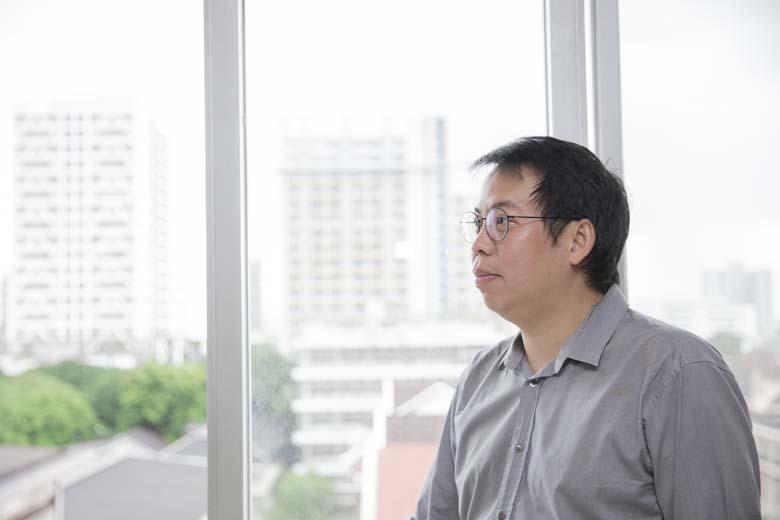
หากจะเล่าถึงจุดเริ่มต้นของธุรกิจ คงต้องย้อนเรื่องราวไปเมื่อ 3 ปีก่อน ที่วิศวกรคนนี้ได้พยายามทำหน้าที่เป็นทั้ง ‘ผู้สร้าง’ นวัตกรรมและความรู้ควบคู่ไปกับการเป็น ‘ผู้สนับสนุน’ ให้คุณหมอนำเอาศาสตร์ด้านวิศวกรรมจากงานวิจัยของตนไปช่วยเหลือคนไข้ได้สำเร็จ นับเป็นชัยชนะแรกของผศ.ดร.บุญรัตน์ที่นำเอางานวิจัยลงจากหิ้งได้อย่างที่ตั้งใจ และยังนำสู่ความหวังครั้งใหม่ที่เขาและทีมงานอยากให้คนไทยและคนทั้งโลกได้มีสิทธิ์ใช้กระดูกเทียมที่มีคุณภาพและประสิทธิภาพสูงกว่าที่มีขายอยู่ในปัจจุบัน ภายใต้มาตรฐานและความปลอดภัยสูงสุด
นี่ก็คือเป้าหมายหลักของ Meticuly สตาร์ทอัพน้องใหม่ที่เริ่มต้นจากการปรึกษากับสถาบันทรัพย์สินทางปัญญาแห่งจุฬาลงกรณ์มหาวิทยาลัย (CUIP) เพื่อขอรับการถ่ายทอดเทคโนโลยี (Technology Transfer) จากจุฬาลงกรณ์มหาวิทยาลัย และดำเนินการยื่นคำขอรับความคุ้มครองสิทธิบัตรในกระบวนการผลิต จากนั้นพวกเขาได้เติบโตและต่อยอดการพัฒนามาเรื่อยๆ จนปัจจุบันมีชิ้นส่วนกระดูกที่สามารถผลิตได้มากกว่า 20 ชิ้นส่วนทั่วร่างกาย และยังจะเพิ่มขึ้นต่อเนื่องในอนาคต โดยพวกเขาไม่เพียงตั้งใจจะใช้ความรู้ด้านวิศวกรรมมาช่วยเหลือวงการแพทย์ไทยเท่านั้น แต่ Meticuly ยังต้องการเป็นส่วนหนึ่งในการสร้างและขับเคลื่อนให้ระบบนิเวศของสตาร์ทอัพในกลุ่ม Deep Technology ในสถาบันการศึกษาไทยมีอนาคตที่สดใสและไปได้ไกลอีกด้วย
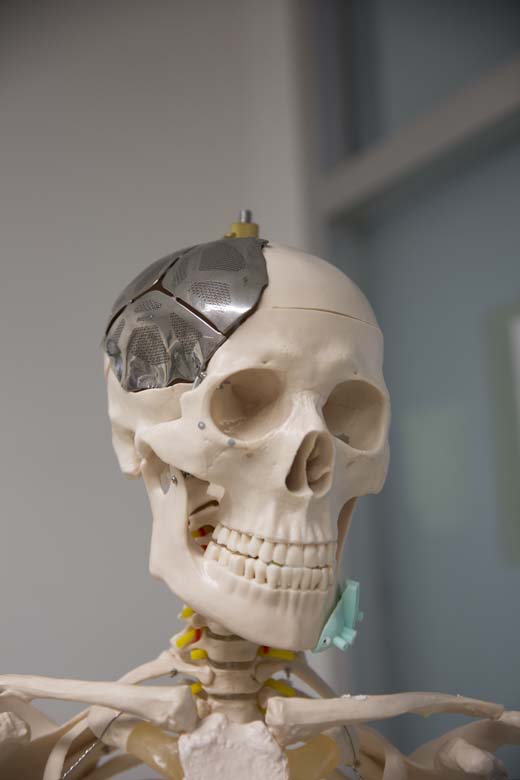
รักษาความเจ็บให้ตรงจุด
‘ตอบโจทย์ pain point เตรียมรับชัยชนะ’ วลีสุดคลาสสิกในวงการสตาร์ทอัพที่ชูการรักษาจุดเจ็บปวด (pain point) ของลูกค้าให้เป็นโอกาสคว้าความสำเร็จทางธุรกิจ Meticuly ก็เช่นเดียวกัน แต่จุดเจ็บปวดที่ว่านั้นยังรวมถึงความเจ็บปวดที่เกิดขึ้นกับร่างกายจริงๆ ของผู้ป่วยที่เฝ้ารอการรักษาและหวังว่าจะหายเป็นปกติในเร็ววัน ดังนั้นความท้าทายขั้นแรกของ Meticuly ที่ต้องเผชิญอาจจะไม่ใช่การเร่งหายูสเซอร์จำนวนมากที่สุด แต่กลับเป็นการพัฒนาผลิตภัณฑ์ให้มีมาตรฐานและความปลอดภัยสูงสุดเพื่อรักษาคนไข้
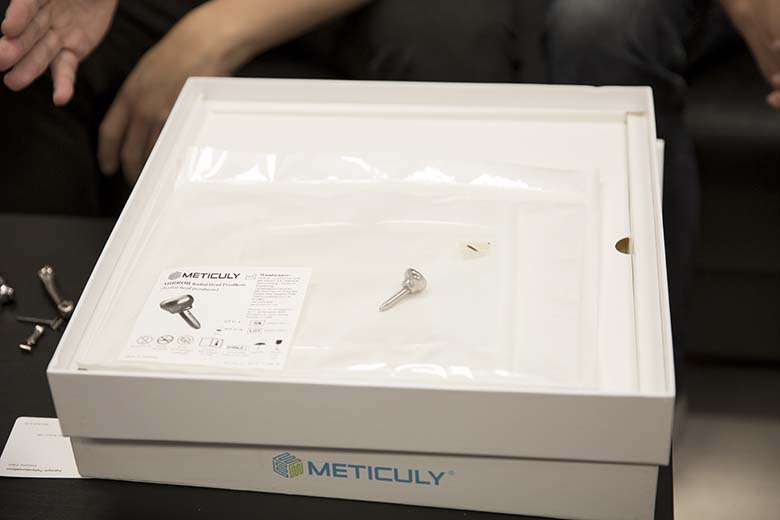
“การสร้างโปรดักส์มาได้หนึ่งตัวก็ไม่ได้หมายความว่าหมอจะมั่นใจและเลือกใช้โปรดักส์ของเรา เราจึงอยากทำให้มันได้มาตรฐานระดับโลกจริงๆ เมื่อหมอเปิดมาใช้แล้วต้องมองข้ามว่ามันเมดอินไทยแลนด์ ถ้ามองในเชิงธุรกิจแล้วต้องทำให้รอด มันก็เป็นโจทย์ที่ยาก พี่ๆ ที่ช่วยกันลงทุนรอบแรก เขามาด้วยความเชื่อตั้งแต่เรายังเป็นวุ้น เพราะเรามีคนไข้แค่ 4 คน มีหมอ 2 ทีม และมี 2 อวัยวะ ถามว่านักลงทุนมาเห็นว่ามี success case แล้ว 4 คน ถ้าถือเป็นยูสเซอร์ก็คือมันน้อยมากถ้าเทียบกับสตาร์ทอัพอื่นๆ แต่สุดท้ายแล้วในมุมของผม จำนวนอาจจะไม่ได้วัดถึงความสำเร็จ แต่มันเป็นเรื่องขององค์ความรู้ เนื้องานที่ได้สั่งสมมา รวมถึง Impact ที่จะเกิดขึ้น
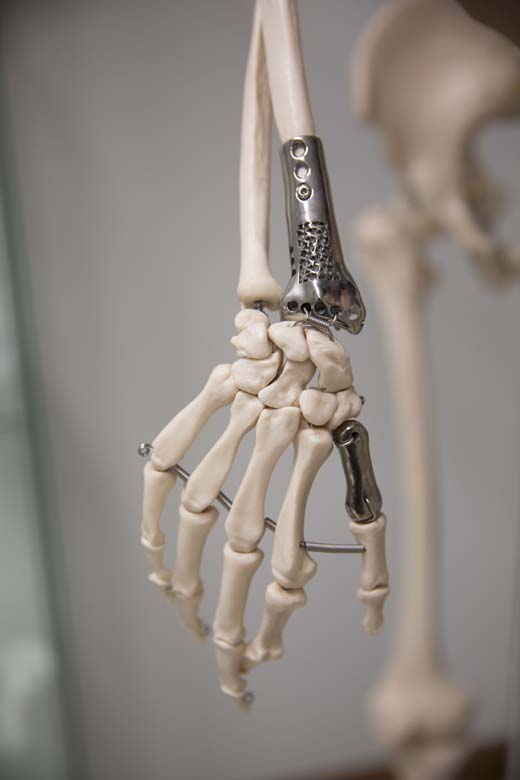
เคยมีหนึ่งในผู้ลงทุนสงสัยว่ามันมีดีมานด์เหรอ วันหนึ่งเขาข้อศอกแตกต้องรอนำเข้ากระดูกข้อศอกเทียมจากต่างประเทศ ซึ่งบังเอิญว่าเคสนั้นได้คุณหมอที่ช่วยพัฒนากระดูกกับเรารักษา คุณหมอก็เสนอกระดูกจาก Meticuly แต่ด้วยเวลาในตอนนั้นทำให้ได้ไม่ทัน พี่คนนี้จึงต้องนำเข้ากระดูกต่างประเทศซึ่งเป็นราคาที่แพงกว่ากันมาก ซึ่งสิ่งที่คิดว่าเป็นเรื่องบังเอิญแบบนี้ พอไปดูสถิติจริงๆ มันเป็นเรื่องใกล้ตัวเรา อย่างกรณีผู้หญิงอายุเกิน 60 ปี เกินครึ่งเป็นโรคกระดูกพรุน ถ้าล้มแรงๆ ก็สะโพกแตก เคสอย่างนี้มีให้เห็นเยอะมาก” ผศ.ดร.บุญรัตน์กล่าว
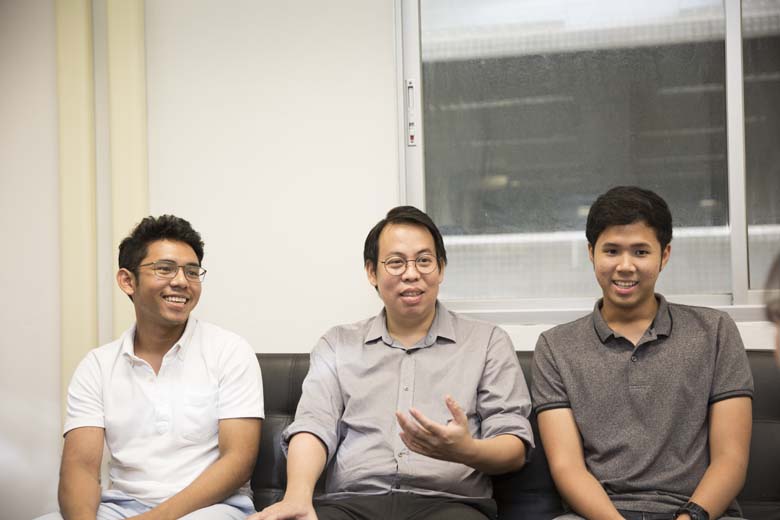
ธุรกิจที่ใช้ใจขับเคลื่อน
เพราะจุดเจ็บปวดของผู้ป่วยเกิดขึ้นต่างกัน การทำความเข้าใจความเจ็บปวดนั้นๆ อย่างถี่ถ้วนเพื่อผลิตกระดูกเทียมให้ได้ขนาดและเข้ากับสรีระเดิมของผู้ป่วยจึงจำเป็นต้องใช้เวลา สิ่งนี้ย่อมหมายถึงการลดโอกาสในการผลิตสินค้าได้จำนวนมากๆ เพื่อช่วยลดต้นทุนการผลิต ทำให้เป็นหนทางที่ยากยิ่งขึ้นกว่าจะไปถึงจุดคุ้มทุนและได้ผลกำไร แต่การเลือกทำธุรกิจในแนวทางนี้ย่อมมีเหตุผลเบื้องหลัง หนึ่งในนั้นก็คือ ‘ความเห็นอกเห็นใจ’ ที่เมื่อทีมงานได้คลุกคลีอยู่กับหมอและผู้ป่วยจริงๆ และพบว่าองค์ความรู้ที่พวกเขามีอยู่สามารถช่วยให้คนๆ หนึ่งได้มีชีวิตที่เป็นปกติอีกครั้ง ความไม่รีรอที่จะทำนับเป็นความภาคภูมิใจที่ยากจะประเมินค่าได้ด้วยจำนวนเงิน
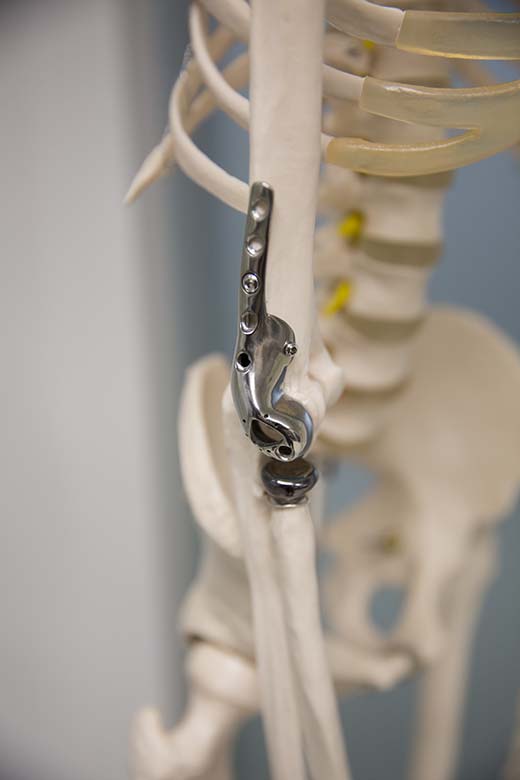
“มีบางเคสที่ต้องใช้ทั้งทรัพยากร เวลา ดีไซเนอร์ หรือเครื่องมือค่อนข้างมากในการออกแบบ อย่างเคสที่ต้องผ่าตัดเอาแขนเด็ก 10 ขวบที่เป็นมะเร็งออก โดยน้องกร (ทีมงาน) เข้าห้องผ่าตัดไปด้วยพร้อมกัน ถึงแม้ว่าเคสนี้จะยาก แต่เราก็เลือกจะทำ เพราะรู้ว่างานของเราสามารถเติมเต็มความหวังเขากลับมาได้ ” ผศ.ดร.บุญรัตน์กล่าว
“ก่อนที่เด็กจะโดนวางยาสลบและผ่าตัด น้องก็จับมือแม่เอาไว้ ความรู้สึกของผมตอนนั้นก็คือ ถ้าสมมติว่าเราเป็นเด็กคนนั้นที่ก่อนเข้าห้องผ่าตัดยังมีแขนและจับมือแม่ได้อยู่ แต่หลังจากผ่าตัดแล้วตื่นขึ้นมาไม่มีแขนแล้วจะรู้สึกยังไง โชคดีที่คุณหมอเปิดแผลและวิเคราะห์ว่าอาจจะเก็บแขนไว้ได้ แต่ก็ต้องรบกวนทางพวกเราให้ช่วย ผมก็ตอบไปตามอารมณ์อย่างที่อาจารย์บอกว่า ‘ยินดีช่วยครับ’ ถึงจะต้องใช้เวลา” น้องกร-กรกฏ ศรีคง วิศวกรพัฒนาผลิตภัณฑ์กล่าวเสริม
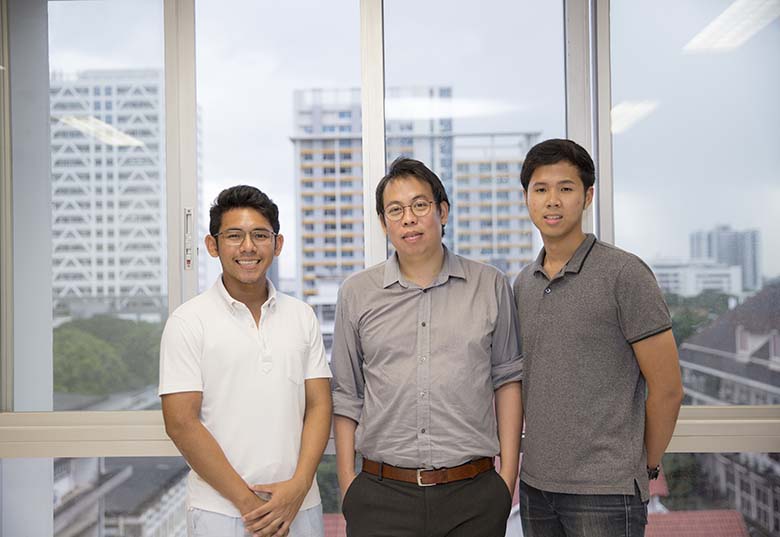
(จากซ้ายไปขวา) กร-กรกฏ ศรีคง วิศวกรพัฒนาผลิตภัณฑ์, ผศ.ดร.บุญรัตน์ โล่ห์วงศ์วัฒน ผู้ร่วมก่อตั้ง Meticuly, กัน-ณัฐภพ หลักดี วิศวกรพัฒนาผลิตภัณฑ์
(left to right) Korn Korakod Srikong (Product Development Engineer), Asst. Prof. Dr. Boonrat Lohwongwatana (co-founder Meticuly), Gunn Natthaphop Lakdee (Product Development Engineer)
เมื่อรักษาคนไข้ได้สำเร็จ 1 ราย ก้าวต่อไปคือการค้นหาคนไข้ที่ยังรอรับการรักษา จุดเริ่มต้นของ “โครงการกระดูกเทียมและอุปกรณ์ไทเทเนียม 100 ชิ้นเพื่อคนไทยโดย วิศวฯ จุฬาฯ” จึงเกิดขึ้น ด้วยความระหว่างคณะวิศวกรรมศาสตร์ จุฬาลงกรณ์มหาวิทยาลัย และ Meticuly โครงการฯ เปิดรับผู้ที่จำเป็นต้องได้รับการผ่าตัดแก้ไขกระดูก โดยไม่เสียค่าใช้จ่ายของกระดูกเทียม ซึ่งโครงการนี้ ได้รับความร่วมมือจากคณาจารย์ในโรงเรียนแพทย์หลายสถาบันที่ปัจจุบันได้ช่วยกันรักษาคนไข้แล้วกว่า 40 ราย โดยนอกจากคนทั่วไปจะได้ใช้กระดูกเทียมคุณภาพสูงแล้ว ทีมงานยังใช้โอกาสนี้ศึกษาอาการคนไข้ที่มีหลากหลายเพื่อเป็นแนวทางในการออกแบบและพัฒนากระดูกหลากชิ้นส่วนมากขึ้น เพื่อท้ายที่สุดแล้วจะนำไปสู่หนทางของการผลิตกระดูกเทียมจำนวนมากขึ้นที่จะช่วยลดต้นทุนในการผลิต และลดราคาผลิตภัณฑ์ลงได้อีก เพื่อเพิ่มโอกาสให้คนไทยเข้าถึงกระดูกเทียมที่มีมาตรฐานและความปลอดภัยสูงสุดได้ในอนาคตเช่นกัน
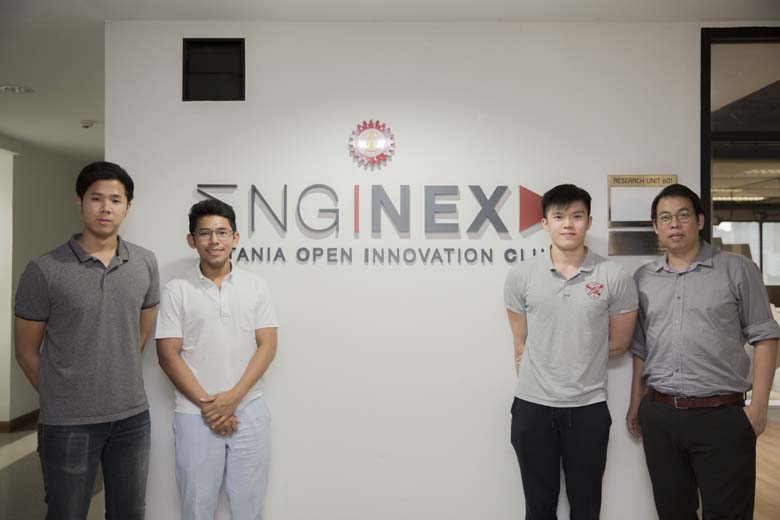
ไปด้วยกัน ไปได้ไกล
ต่างจากธรรมชาติส่วนใหญ่ของธุรกิจสตาร์ทอัพที่นิยมเข้าร่วมการแข่งขันแบบวิ่งเร็วระยะสั้น เพราะอยากรีบสำเร็จ (Quick Win) และกระโจนออกจากเกมการแข่งขันให้ได้เร็วที่สุดเพื่อเริ่มต้นทำธุรกิจใหม่ที่ดูมีแววไปได้ไกลกว่า (Exit Strategy) แต่ Meticuly กลับเลือกวิ่งแบบมาราธอนที่ต้องใช้ความอึดและแรงใจมหาศาลในการฝ่าฝันไปทีละจุดเช็กพอยท์เพื่อหมั่นตรวจสอบให้แน่ใจว่าคนไข้ปลอดภัยอยู่เสมอ และเป้าหมายของการวิ่งครั้งนี้ก็ไม่ได้หวังเพียงการได้เหรียญรางวัล แต่คือการได้เป็นแบบอย่างให้นักวิ่งหน้าใหม่กล้าที่จะลงมาวิ่งในสนามแข่งเดียวกัน
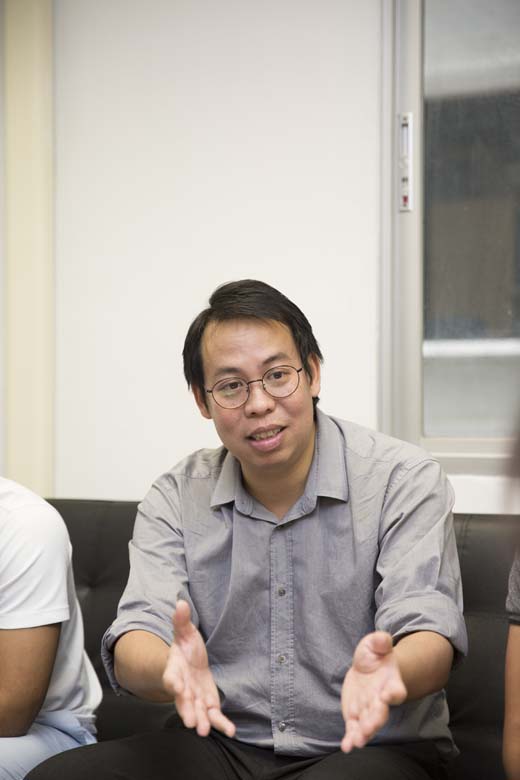
“ประเทศไทยมีหมอที่เก่งมากๆ อยู่แล้ว เราอยากซัพพอร์ตเขาด้วยเทคโนโลยีที่เรามี แทนที่จะต้องพึ่งการนำเข้าจากต่างประเทศ นี่เป็นหนึ่งในเป้าหมายที่ผมมองว่าสำคัญมาก เพราะเราสามารถสร้างงานได้ด้วย น้องๆ ที่ทำงานอยู่ด้วยกันก็มีแพสชั่นในการทำสตาร์ทอัพ ผมก็บอกพวกเขาว่าทำตรงนี้เหมือนได้อีกปริญญาแต่ได้ลงมือทำเลยจริงๆ ซึ่งมองไปล่วงหน้าว่าอีก 3 ปี เขาจะได้เปิดบริษัทของตัวเอง จะได้โตใน economy นี้ด้วยกัน ข่าวดีก็คือเราเป็นส่วนหนึ่งในการสร้าง Med Tech Industry ที่มันกำลังเติบโตขึ้นและมีอีกหลายคนที่คอยสนับสนุนอยู่ และอีกเป้าหมายหนึ่งก็คือ เราอยากสร้าง Deep Tech Ecosystem ที่สถาบันการศึกษาจะสามารถสนับสนุนผู้ประกอบการขึ้นมาได้อย่างยั่งยืน” ผศ.ดร.บุญรัตน์กล่าวทิ้งท้าย
Did You Know?
|
ติดตามข่าวสารและความเคลื่อนไหวของ Meticuly ได้ที่ www.meticuly.com
เรื่อง : วรรณเพ็ญ บุญเพ็ญ ภาพ : ภีร์รา ดิษฐากรณ์
Meticuly: When Doctors and Engineers Join Force to Disrupt Thai Healthcare Industry
“An engineer is a ‘creator’. The question is what shall we create to be useful?”
That attitude perfectly expresses the standpoint of Asst. Prof. Dr. Boonrat Lohwongwatana, a faculty member at the Metallurgical Engineering Department, Chulalongkorn University and co-founder of Meticuly, the developer of customised titanium bone implants using 3D printing technology.
To start from the beginning, we will have to go back to 3 years ago when this engineer took up the double roles of ‘creator’ of innovation and knowledge as well as ‘supporter’ who enabled doctors to successfully adopt his engineering research findings to help patients. That was Asst. Prof. Boonrat’s first win in his plan on transferring research into practical application. It also brought on a new hope--he and his team wanted Thais and people around the world to be able to use bone implants of higher quality and effectiveness than what is on the market today, while also maintaining the highest standards of safety.
That is the main goal of Meticuly, a new startup which had its start from a consultation with the Chulalongkorn University Intellectual Property Institute (CUIP) for technology transfer from Chulalongkorn University and proceeded to apply for patent protection of production process. From then, Meticuly has grown and built on its development until it can now create over 20 bone implants for various body parts, and counting. The team not only intends to use their engineering knowledge to help Thai healthcare industry, but also to take part in building and strengthening the ecosystem of Deep Technology startups in Thai educational institutes which show promising future.
Hitting the Hurting Spot
“Solve the pain points and prepare to win” is a classic saying in the world of startups where fixing customers’ pain points is the key to business success. The same goes for Meticuly, but its customers’ pain points actually involve the literal physical pain of patients who wait for the cure in hope of getting well quickly. Meticuly’s first challenge, therefore, might not be the urgency to draw as much customers as possible, but to develop products of maximum standards and safety.
“Once we’ve developed a product, it doesn’t mean that the doctors will be confident and choose to use it. So we want to make products of global standards so that the doctors will not care that they are made in Thailand. And businesswise, we must be able to survive. That’s a tough challenge. Our first-round investors believed in us since we’re still embryo. We only had 4 patients, 2 teams of doctors and 2 organs. For investors, 4 success cases are considered very small compared to other startups. But ultimately, I think the measure of success might not be just quantity but it’s about cumulative body of knowledge and work as well as the future impact.
One of our investors doubted if there was a demand for it. Until one day, he broke his elbow and had to wait for an imported elbow bone implant. His doctor happened to be a member of our bone development team and offered Meticuly bone. Unfortunately, we couldn’t make it in such short time so our investor had to import the implant at much higher price. According to the statistics, such accident is closer to home than people might think. More than half of over 60 years old women have osteoporosis. If they fall down hard, their hip bones would break. Such case happens very often,” Asst. Prof. Dr. Boonrat said.
Labour-of-love Business
Because each patient has a different pain point, it takes time to thoroughly understand such pain in order to create the bone implant that precisely matches with their size and physiology. That means lower opportunity in mass production to reduce cost and makes it harder to reach the breakeven point and profit. However, there are reasons behind the team’s decision to operate this way—one of them is ‘empathy’. Having worked closely with the doctors and patients and found that their body of knowledge can help someone get back their normal life, it brings the team a sense of pride that cannot be measured by money.
“There were some cases that took quite a lot of time, designers and tools. For instance, a 10 years old cancer patient must undergo an arm imputation surgery. Our team member Korn had to go into the operating room too. Even though this was a tough case, we still chose to do it because we knew that our work could fulfill their hope,” Asst. Prof. Dr. Boonrat said.
“Before the child was put to sleep under anesthesia, he held his mother’s hand. My feeling at that time was, if I were this kid who had an arm and could hold his mother’s hand before entering the operating room, how he’d feel when waking up without his arm. Fortunately, the doctor examined the wound and analysed that they might be able to keep his arm but needed our help. And I said ‘Happy to help,’ even though it would take time,” Korn Korakod Srikong, Product Development Engineer added.
After successfully helping one patient, the team’s next step was to look for other waiting patients. That was the start of the “100 Bone Implants and Titanium Devices for Thais by Chulalongkorn University Faculty of Engineering Project”, a collaboration between the Faculty of Engineering, Chulalongkorn University and Meticuly. The project offered free bone implants for those who needed bone repair operations. With cooperation from the faculties in several medical colleges, over 40 patients have been treated. Besides giving the public a chance to use high quality bone implants, the team also gets to study the patients’ different symptoms in order to design and develop more bone parts. The ultimate goal is to develop mass production methods that will help reduce production cost and product price so that Thai people have more access to bone implants of maximum standards and safety in the future.
Together We Will Go Far
Most startups prefer a sprint race because they want to score a quick win and then leave the game as soon as possible to start a new and more promising business. Meticuly, on the other han, chooses to run a marathon which takes a great deal of endurance and mental strength to reach each check point in order to ensure that the patients are always safe. And its goal is not only to win the medal, but to become a role model to encourage new runners to enter the race.
“There are many brilliant doctors in Thailand. We want to support them with our technology instead of relying on imports. That’s one of the goals that matter a lot to me since we can also create jobs. My younger colleagues are passionate about startup business. And I said to them that doing this is like getting another degree but you get to actually make things happen yourselves. Fast forward to the next 3 years, they will open their own companies and grow in this economy together. The good news is we play a part in building the Med Tech Industry which is growing and has the support of many people. Our other goal is creating a Deep Tech Ecosystem where educational institutions can support entrepreneurs in a sustainable way,” Asst. Prof. Dr. Boonrat concluded.
|
Did You Know?
|
Follow Meticuly’s news and updates at www.meticuly.com
Story: Wanphen Bunphen Image: Peera Disttakorn




